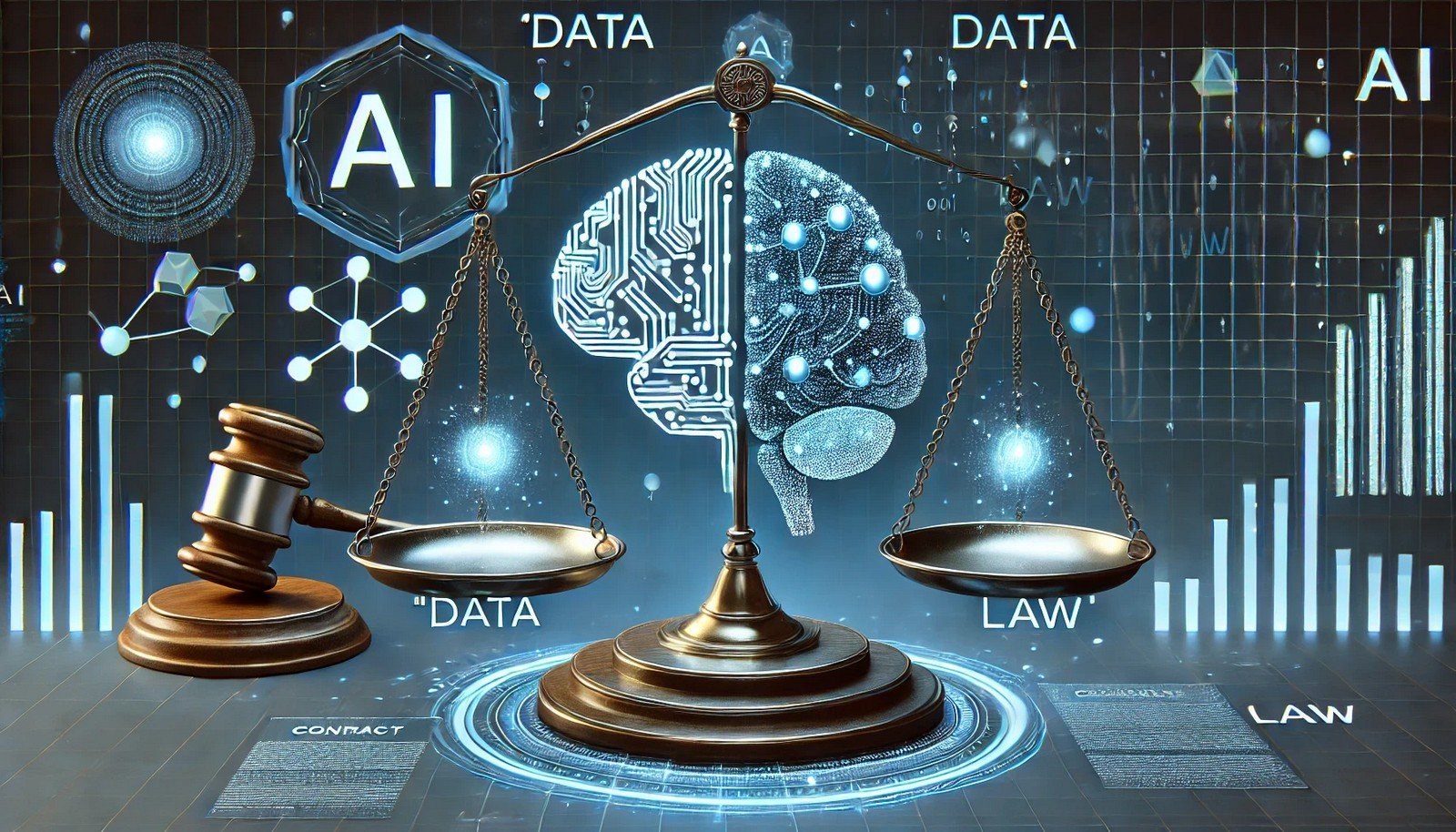AI in Legal Services

Quick Navigation:
- AI in Legal Services Definition
- AI in Legal Services Explained Easy
- AI in Legal Services Origin
- AI in Legal Services Etymology
- AI in Legal Services Usage Trends
- AI in Legal Services Usage
- AI in Legal Services Examples in Context
- AI in Legal Services FAQ
- AI in Legal Services Related Words
AI in Legal Services Definition
AI in legal services refers to the application of artificial intelligence technologies to assist with various legal tasks. This can include automating routine research, analyzing vast amounts of legal documents, predicting case outcomes, and supporting decision-making in complex cases. AI technologies, such as machine learning, natural language processing (NLP), and predictive analytics, enable legal professionals to process information more efficiently and accurately, resulting in improved service delivery and cost efficiency for clients.
AI in Legal Services Explained Easy
Imagine you have to go through hundreds of pages to find information for a school project. With AI in legal services, it's like having a smart helper who reads all those pages quickly and finds exactly what you need. Lawyers use AI to do tasks faster and better, like finding important information in big stacks of papers or figuring out what might happen in a case.
AI in Legal Services Origin
The adoption of AI in legal services began in the late 20th century with basic legal software applications. However, recent advancements in AI have enabled tools that can perform tasks such as document review, predictive analytics, and even drafting legal documents, revolutionizing the industry.
AI in Legal Services Etymology
The term “AI in legal services” combines “artificial intelligence,” which refers to intelligent machine behavior, with “legal services,” signifying professional legal support and advice.
AI in Legal Services Usage Trends
Over recent years, the use of AI in legal services has surged. Law firms and corporate legal departments are increasingly investing in AI-driven tools for document analysis, contract review, and even litigation prediction. AI is becoming essential as firms look to improve efficiency, cut costs, and provide more precise legal advice.
AI in Legal Services Usage
- Formal/Technical Tagging:
- Legal Tech
- Artificial Intelligence
- Document Analysis - Typical Collocations:
- "AI in legal analysis"
- "legal AI tools"
- "predictive analytics in law"
- "legal research automation"
AI in Legal Services Examples in Context
- Law firms use AI-powered tools to streamline the document review process, significantly reducing time spent on litigation cases.
- AI-driven predictive analytics tools help lawyers assess the likelihood of case outcomes, aiding strategic decisions.
- Contract management software with AI assists in identifying and mitigating potential risks in complex contract structures.
AI in Legal Services FAQ
- How does AI improve legal services?
AI helps streamline processes, reduce human error, and improve accuracy in research and analysis. - What tasks can AI automate in legal settings?
AI can automate document review, contract analysis, legal research, and predictive case outcome analysis. - Is AI replacing lawyers?
No, AI assists lawyers by handling repetitive tasks, allowing them to focus on complex legal issues. - What are the main AI tools used in legal services?
Common tools include predictive analytics, NLP for document analysis, and contract management software. - How accurate is AI in predicting case outcomes?
AI's predictive accuracy varies based on data quality but can offer insights into case probabilities. - Can AI help in legal research?
Yes, AI significantly accelerates research by quickly finding relevant case laws and precedents. - Are there ethical concerns with AI in legal services?
Yes, issues include data privacy, biases in algorithms, and reliance on technology in decision-making. - What is natural language processing in legal services?
NLP allows AI to understand and process human language, essential for analyzing legal documents. - Do all law firms use AI?
Not all, but adoption is growing rapidly, especially among large and mid-sized firms. - Is AI secure enough for legal applications?
Most AI tools in legal services adhere to strict security standards to protect sensitive information.
AI in Legal Services Related Words
- Categories/Topics:
- Legal Technology
- Document Review
- Predictive Analytics
- Legal Research
Did you know?
AI in legal services played a key role in the first AI-driven analysis of legal contracts, saving thousands of hours in document review for large mergers. This innovation has paved the way for further AI applications in corporate law.
PicDictionary.com is an online dictionary in pictures. If you have questions or suggestions, please reach out to us on WhatsApp or Twitter.Authors | Arjun Vishnu | @ArjunAndVishnu

I am Vishnu. I like AI, Linux, Single Board Computers, and Cloud Computing. I create the web & video content, and I also write for popular websites.
My younger brother, Arjun handles image & video editing. Together, we run a YouTube Channel that's focused on reviewing gadgets and explaining technology.



Comments powered by CComment